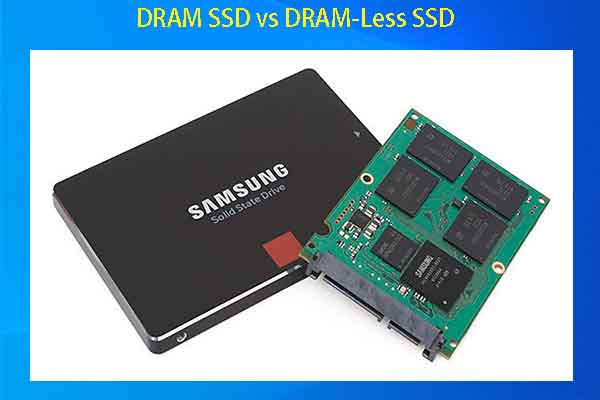To manage enterprise hard drives effectively, you can use MiniTool Partition Wizard – a multifunctional free partition manager for Windows computers. It enables you to partition hard drives, convert MBR to GPT (and vice versa), clone hard drives, increase disk space, check hard drives for errors, recover data from hard drives with bad sectors, etc.
MiniTool Partition Wizard FreeClick to Download100%Clean & Safe
About Enterprise Hard Drives
Enterprise hard drives (HDDs) are designed and optimized for use in enterprise-level environments. These environments typically involve heavy-duty usage like data centers, servers, and storage systems where reliability, performance, and durability are important.
Enterprise hard drives offer the necessary reliability, performance, and capacity for mission-critical, continuously demanding applications in an organization’s data storage infrastructure. Different from general-purpose hard disks used in a wide array of use cases and environments, enterprise hard drives are designed to meet the high-capacity, high-speed, high-reliable needs of modern business data storage and access.
Generally speaking, an enterprise HDD is not used as a standalone hard drive, but as part of a collective unit to operate entire servers with efficiency and regularity. Though this is not always the case, it is a consideration when evaluating the worth of an enterprise hard drive.
Enterprise Hard Drives vs Consumer Hard Drives
The table below illustrates the difference between enterprise hard drives and consumer hard drives.
| Features | Enterprise HDDs | Consumer HDDs |
| Purpose | Designed for heavy workload and 24/7 operations with peak reliability | Meant for typical consumer use, not meant for 24/7 constant operations |
| Reliability | Enhanced reliability and durability | Reliable for regular, non-intensive use |
| MTBF (Mean Time Between Failures) | Typically higher and more predictable MTBF | Standard MTBF |
| Performance | Higher RPMs and faster data transfer rates | Standard RPMs and moderate transfer rates |
| Capacity options | Available in larger capacity options as high as 20TBs | Commonly available in consumer-friendly sizes |
| Vibration resistance | Enhanced vibration resistance | Basic vibration resistance |
| Error recovery | Improved error recovery mechanisms | Basic error recovery features |
| Power consumption | May have higher power consumption | Standard power consumption |
| Use case | Compatible with any system but optimized for enterprise use | Compatible with standard consumer systems not ideal for enterprise use |
| Cost | Higher cost due to advanced features | More budget-friendly for average consumers |
| Warranty | Longer warranty periods | Standard consumer warranty |
Both enterprise hard drives and consumer hard drives can be slotted into either use case. Enterprise drive for personal use, and consumer drive for enterprise use if necessary. Even so, enterprise drives do serve their purpose for server use. You should note that constant 24/7 use of a consumer drive can damage the drive causing a sooner failure.
Best Enterprise Hard Drives
If you are searching for best enterprise hard drives, pay attention to this section where several top enterprise hard drives are listed. They are also the best-buy enterprise hard drives on the market.
#1: Seagate Exos (Best for Heavy Workloads)
This series of enterprise hard drives is built for server environments and heavy workloads. It comes with serial AT attachment (SATA) and serial attached SCSI (SAS) interfaces. It has been rated to perform at 2.5 million hours of mean time between failure (MTBF).
Seagate Exos is a Self-Encrypting Drive (SED) version with Federal Information Processing Standard (FIPS) support for government-grade encryption. It can be combined with any number of Seagate Exos drives in a single NAS device.
#2: Seagate Ironwolf Pro (Best for Data Centers)
It is similar to the Seagate Exos series. It is designed for data centers, servers, high-capacity SATA/SAS/non-volatile memory express (NVMe) applications, and other scenarios that require high levels of performance and reliability. It is an ideal option for both enterprise and small/medium business NAS applications.
Pre-configured with a hard drive health application for automatically pinpointing and resolving potential issues, Seagate Ironwolf Pro is regarded as one of the best enterprise hard drives. Its maximum capacity is 16TB. It offers a three-year warranty and data recovery option.
#3: WD Gold Enterprise (Best for Size Options)
Being the top-of-the-line HDD series of WD Gold, it boasts the highest storage capacities and sustained transfer rates. Besides, it also includes features like ArmorCache. And its non-volatile cache solution improves performance and reduces the risk of data loss typical in conventional DRAM-based caching.
With OptiNAND and ArmorCache technology, WD Gold Enterprise is ideal for use in enterprise-class centers and storage systems. Being one of the best enterprise hard drives, it supports larger storage capacity requirements and has strong warranty and software support options.
#4: Toshiba MG Series: Best for Mixed Use Workloads
Designed for nearline business-critical workloads, this series of enterprise hard drives offers enterprise data management and storage-utilization features. Moreover, it contains data center server and storage infrastructure capacity options that range from 1TB to 10TB for supporting 24/7 mixed-use workloads.
It comes with Toshiba Persistent Write Cache Technology for data loss protection during unexpected power losses. Additionally, it also has 512e or 4Kn Advanced Format Sector technology. It is available in SATA or SAS models.
What are the best enterprise hard drives? This list lists the top 4 enterprise hard drives on the market.

![Check SSD PCIe Version with 3 Easy Methods [New Update]](https://images.minitool.com/partitionwizard.com/images/uploads/2023/11/check-ssd-pcie-version-thumbnail.jpg)

User Comments :